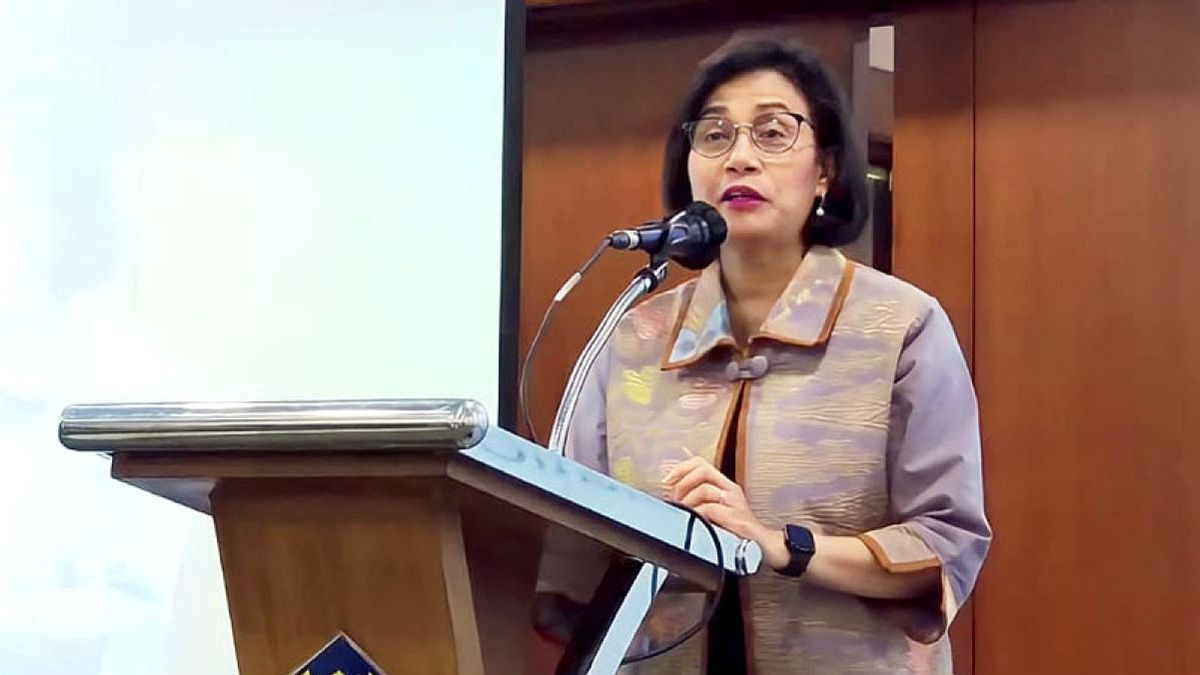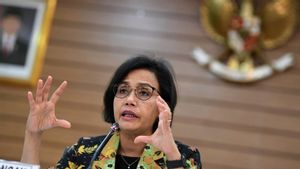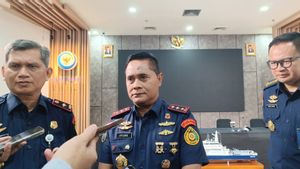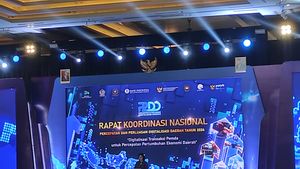Minister of Finance Sri Mulyani Indrawati said the government would continue to encourage digital transformation in the financial sector, especially the modernization of tax administration by local governments.
"We continue to encourage the modernization of tax administration by the local government and digitalization which is carried out today is part of continuing to improve capabilities in terms of modernization both in terms of business processes and administrative infrastructure," said Sri Mulyani at the National Coordination Meeting for the Acceleration and Expansion of Regional Digitalization (P2DD) at Hotel Indonesia Kempinski, Monday, September 23.
According to Sri Mulyani, digital transformation is a requirement for Indonesia to become a developed country, therefore the State Revenue and Expenditure Budget (APBN) is used to continue to encourage the development of digitalization infrastructure, including central and regional financial transactions.
Sri Mulyani said that the government continues to develop information technology for regional tax management together to improve capabilities, synergies and collaborations between the central and regional governments,
According to Sri Mulyani, in managing the APBD payment system, regions cannot be separated or respectively because we are not an autonomous zone so that each region cannot build partial software.
"We will continue to encourage and with Bank Indonesia also want to make a payment system that is more efficient, e-government, which is built and the management of the APBN-APBD is an inseparable part," he said.
In addition, Sri Mulyani said that her party together with the Ministry of Home Affairs are building an information system for the management of SIPKD regions. So that the financial information system can be integrated and in line with harmonization and synergy to encourage central shopping and regional spending.
With SIPKD, Sri Mulyani hopes that each region has regional financial information standards whose databases are the same and data and interoperability as well as information that can be combined with state finances, namely the state budget (SPAN) system.
This is a pulse from state finances from the center to the regions even to the village.
"The government will continue to anticipate various new business models that will emerge in the financial sector, especially because these are areas that will continue to develop and of course we encourage innovation without creating fragmentation," he said.
Sri Mulyani said that innovation needs to be nurtured because this is part of advancing the nation and state. Therefore, innovation and regulations must continue to be balanced to create a conducive digital ecosystem and also provide educational rides for the public regarding financial and digital literacy.
"The government will continue to pay attention to aspects in terms of consumer protection and data protection digitally, new threats will emerge often because the more unequal fields also create an opportunity for parties who are not well aimed at exploiting the fragmented and different systems in terms of reliability," he explained.
SEE ALSO:
Furthermore, Sri Mulyani added, accelerating and expanding regional digitization by encouraging the implementation of local government electronic transactions will increase transaction transparency from regional finances.
So that at the same time encouraging governance in the regions, in this case governance becomes better and integrates the regional financial management system.
"ETPD or the electronification of regional government transactions is not only carried out on the expenditure side, namely the time to spend money, but in terms of income, whether PAD or in terms of retribution tax and also in tax centers, customs and non-tax state revenues," he said.
The English, Chinese, Japanese, Arabic, and French versions are automatically generated by the AI. So there may still be inaccuracies in translating, please always see Indonesian as our main language. (system supported by DigitalSiber.id)











